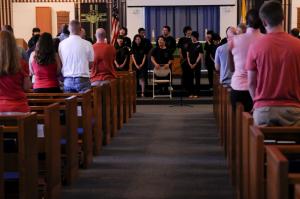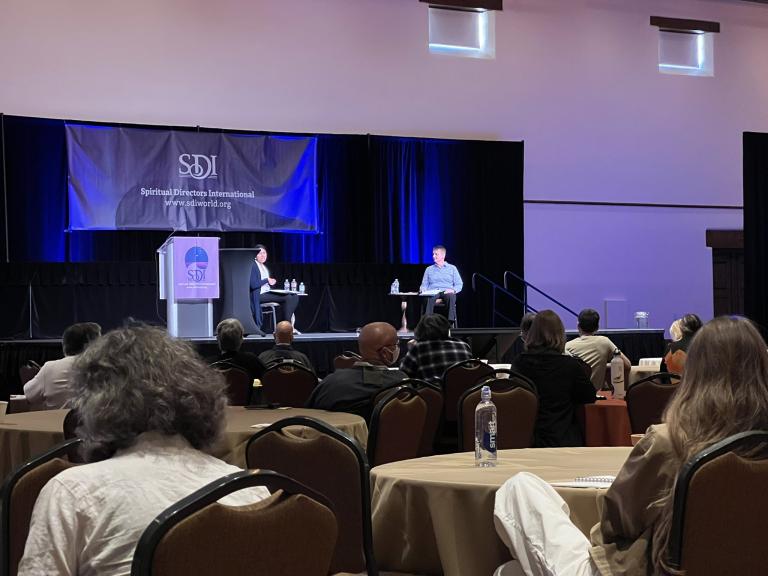
It seems churches are churning out “choir boys” who don’t know how to treat women. In light of the contentious battle on Capital Hill around the Judge Kavanaugh nomination and a lot of misunderstanding around consent, I am revisiting this piece about appropriate attitudes toward women, especially in churches, as described by those in the #ChurchToo movement.
Women are trying to get a point across on this subject and we are not being heard. Patriarchal religious institutions often treat women as appendages of men, or objects to be treated at a man’s discretion. This is otherwise known as “the men get to make the rules.”
The #ChurchToo movement features women speaking out about a whole range of unwanted physical behavior from people (mostly men) in their churches. The stories we hear from women about groping, unwanted kissing, sexually suggestive remarks and gestures are stories of male power over women. It’s less about sex than about power (though the two are interrelated). The times I have experienced men behaving badly at church, it has been men wanting to show me they “have something over me” (a body part, a privilege in society, expertise).
It’s not primarily about sexual desire, longing or anything erotic; it’s about lack of consent.
Addressing Awareness
Without a doubt, behaviors such as unwanted sexual advances, forcing sexual acts and creating a hostile environment for women are wrong and need to be punished accordingly. But, I’m going to address a few behaviors that fall into grey areas and also tend to push people’s buttons. They are also reasons some women have decided to avoid church altogether.
Commenting on Women’s Appearance
Some men make remarks about how a woman looks — remarks they believe are flattering. Some women enjoy this attention, but many don’t want to feel the burden of responding to the “fashion police” at church. As a general rule, unless you are in an intimate, mutual and consensual relationship with a women, making a comment about our appearance can be embarrassing for us. This would not be #ChurchToo misconduct, just awkwardness!
Lay off the Hugging
Excessive hugging in faith communities during times like “passing of the peace” (an unbearably awkward time for introverts and newcomers) or greeting the pastor at the door is a problem for many people. This is not just about men, either. I think every church has an older woman who demands that we give her a hug every Sunday — and usually she won’t accept a handshake as a substitute! Church membership committees need to educate the congregation about the adverse effects of being a super touchy church. If I have not shown by my words or body language that I would consent to a hug, don’t give it.
Just Say No to the “Holy Kiss”
In some churches, people even kiss one another! Lots of us do not want to be touched by strangers, much less kissed by anyone in church, regardless of motive. And people who have been sexually abused (especially as children) can be triggered in the worst way by being in an atmosphere where such touching is routine or expected. Some would rather not go to church than to have to put up with that.
I know you want to be warm and inviting — and many people in faith communities genuinely love and have affection for one another. But think of the situation you create for others, think of #ChurchToo, when you make a show of public affection.
It’s Not Hard: Just Keep Your Hands To Yourself
No one is asking men to use this occasion of enlightenment around sexual harassment as an excuse to avoid women or situations where they might be alone with women. Women need the company of men in order to advance in all areas of life, including church business. I’m particularly bothered by some conservative Christian teachings that try to keep men and women apart. Women have to be able to travel with male colleagues on business, for example. All we ask is that men understand the problems inherent in making any kind of suggestive remarks or actions.
Some Guidelines
-No sexually suggestive remarks or overtures. Do not comment on a person’s body shape (including “have you lost weight?”). Keep your dirty jokes to yourself.
-No intimate touch. Handshakes and gentle touches on the forearm are usually acceptable and are not as problematic as hugs, pats on the back or arms around the waist.
-No initiation of sexual conversation. This doesn’t mean the church can’t address sexuality in its programming — it absolutely should! But, talk about sex in casual conversation can be deemed harassment. For example, refrain from being curious about another person’s relationship status.
-No wielding of your power in any way over another person. No undue influence or coercion. Respect one another.
None of what is described here is difficult, though it can be hard for church people to talk about. The culture in many churches has, for years, included the kind of chumminess that people adore but others find off-putting.
I propose that the conflict around the Kavanaugh nomination and Dr. Ford’s testimony about sexual abuse be an opportunity for churches to address sexual abuse and consent head on. Teach leaders to listen to women in the #ChurchToo movement. Too many women have been abused at the hands of powerful church men. It’s time we changed the culture to make women, children and other sensitive souls more at ease in God’s house.
Spiritual direction is the practice of noticing where God is alive in your life and work. A spiritual director can help you learn new ways to pray. If you want to learn more about spiritual direction, I have a new book Spiritual Direction 101: The Basics of Spiritual Guidance by Apocryphile Press that addresses many aspects of this practice. It’s available on Amazon.
Also, I enjoy sharing emails with people who have questions about spiritual direction. I may be reached at [email protected] or via my website www.teresablythe.net. I do have openings for spiritual direction clients if you are interested.
















